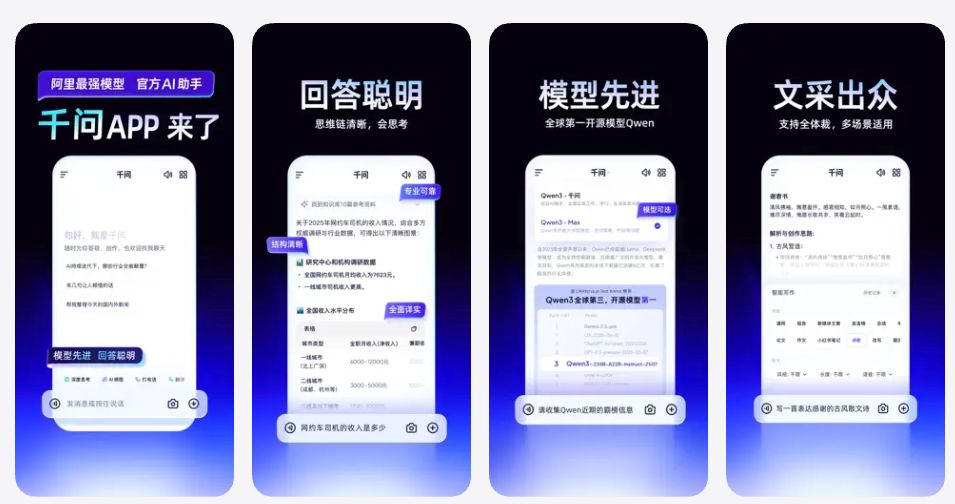The Ali Qianwen app's initial launch faces a surge in traffic; the official response is "operating well, feel free to ask."
The public beta of the Qianwen app has been launched, with Alibaba introducing its personal AI assistant to the consumer market. The first day’s traffic exceeded expectations, and some users experienced service congestion. “Alibaba Qianwen crashed” quickly trended on social media, but the official response stated that the system is operating normally.
On January 17, Alibaba announced that its personal AI assistant, Qianwen APP, has officially entered public beta and is now available to users for free.
The Qianwen App is based on the world’s top-performing open-source model, Qwen3, and is positioned as a personal AI assistant that can both “converse” and “get things done.” Alibaba plans to integrate life scenarios such as maps, food delivery, ticket booking, office work, study, shopping, and health into the Qianwen APP, allowing users to complete multiple daily tasks through a single application. The public beta version is now available on major app stores, as well as on web and PC platforms.

On the first day of the public beta, Qianwen APP experienced a traffic peak, causing congestion and interruptions in some services. Many users reported that they could not get a response after entering commands, with the app displaying a “gateway congestion” message. On Weibo, “Alibaba Qianwen crashed” quickly became a trending topic. Alibaba’s official response stated that the system was operating well and welcomed users to try it out, “I’m doing well, system status is good, feel free to ask.”
The Qianwen APP is built on the Qwen series of large models. Since Qwen was fully open-sourced in 2023, its performance has surpassed international open-source models such as Llama and Deepseek, with global downloads exceeding 600 million.
Airbnb CEO Brian Chesky stated that the company’s business relies heavily on Qwen, considering it faster and more efficient than OpenAI’s models. Nvidia CEO Jensen Huang also pointed out that Qwen holds a significant share in the global open-source model market and continues to expand.
Earlier this year, Alibaba announced an investment of 380 billion yuan in AI infrastructure construction, with plans for further investment. At the Yunqi Conference on September 24, Alibaba released the Tongyi flagship model Qwen3-Max and the next-generation foundational model architecture Qwen3-Next. The preview version of Qwen3-Max-Instruct ranked third on the LMArena text leaderboard, surpassing GPT-5-Chat. At the same time, Alibaba announced a partnership with Nvidia in the PhysicalAI field to provide end-to-end platform services for enterprise users.
It is understood that the Qianwen APP is led by Alibaba’s Intelligent Information Business Group, with participation from Alibaba Cloud, Tongyi Lab, Taotian, Amap, and other departments. The app features a minimalist design, enables online search by default to reduce the risk of large model “hallucinations,” and integrates functions such as image generation, AI photo editing, video calls, and real-time translation.
Alibaba stated that the public beta version is an initial release, and agent-style AI features will be gradually added in the future, especially to enhance the shopping experience on e-commerce platforms such as Taobao.
Disclaimer: The content of this article solely reflects the author's opinion and does not represent the platform in any capacity. This article is not intended to serve as a reference for making investment decisions.
You may also like
CZ's personal lawyer responds to "insider deal of money and pardon with Trump"
What is the likelihood of CZ returning to Binance?

Data Insights: Who is Buying and Who is Selling BTC and ETH?
Long-term BTC holders continue to sell and take profits.

Zhao Changpeng's lawyer shares the behind-the-scenes story of the "pardon"
Exclusive Interview with CZ’s Lawyer: Reasons for the Pardon, Process Details, and Clarification of “Money-for-Power” Allegations

